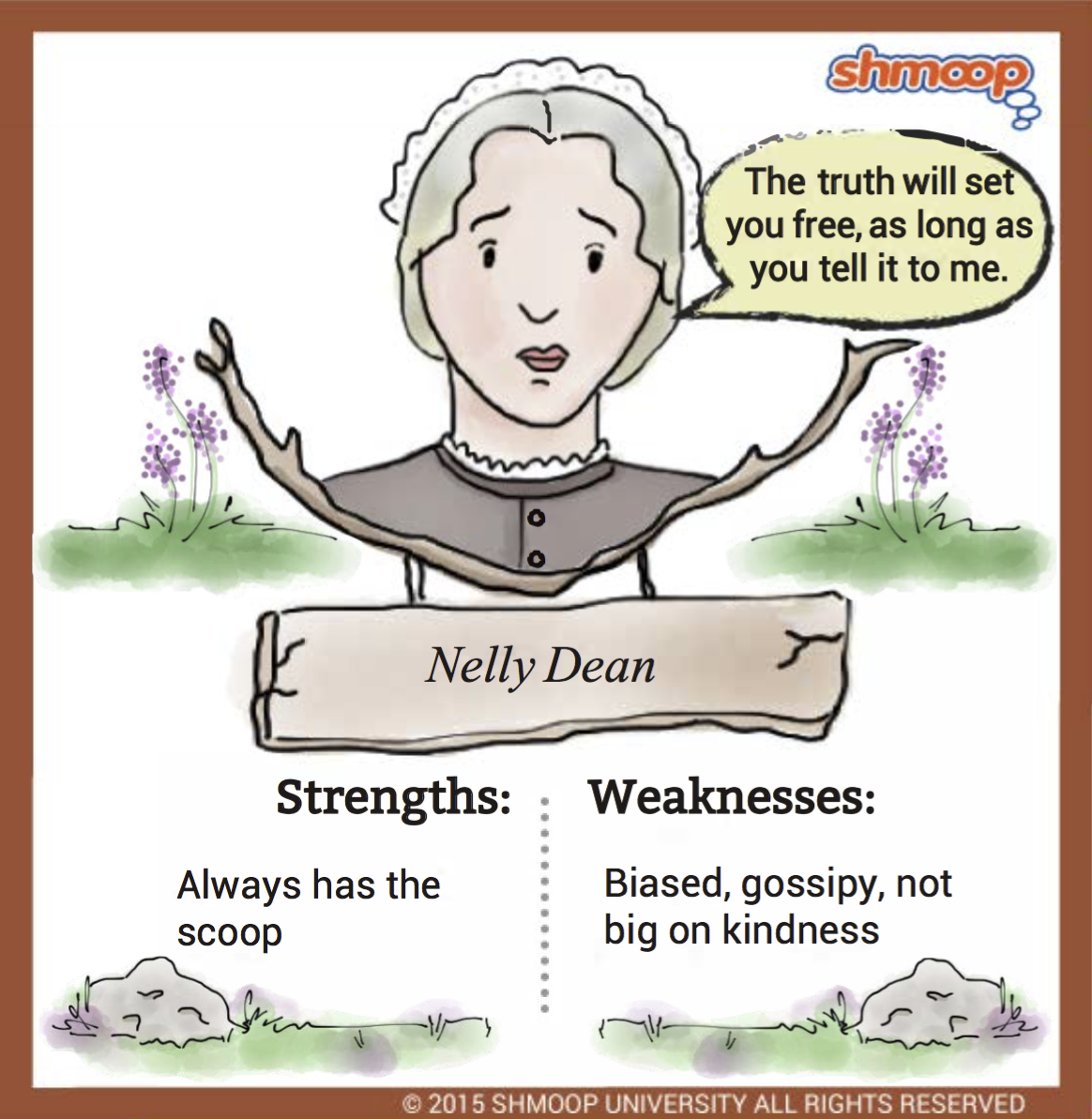Testing the Reliability of a Narrator
Emily Bronte’s choice of narration is both a peculiar and clever one in Wuthering Heights. It is interesting to note her success in this decision as the story unfolds from a stranger's diary who is able to acquire the entire narrative from a servant who witnesses the past events that occur between the Lintons and the Earnshaws. During a recent class discussion, this topic was lightly touched by my fellow peers and they suggested that the retrospect of the past events could not have been told in a more pure manner if it was not told by Nelly Dean. The class discussed how Mrs. Dean was a great choice because she is “neutral” and had an opportunity to live in both Thrushcross Grange and Wuthering Heights; therefore, she knows everything and if the narration was told by someone else it would have been biased. This argument is agreeable, but I think there is more behind Emily Bronte’s choice of Nelly Dean to tell the story. More light is shed on an article entitled The Villain in Wuthering Heights by Hafley James where readers find answers.
In his article, Hafley James concludes that “Nelly Dean is the villain of the piece, one of the consummate villains in English Literature.” Hafley contends that her role has been misunderstood and readers fail to discern her selfish intentions. Rather than being the “normal” one or morally correct in the story as some critics might say, she manipulates others cruelly to increase her power in the household to the extent that after Heathcliff dies, she effectively controls the daily life of the Grange. James provides various evidence within the novel that supports his claim of Mrs. Dean’s desire to be at the top. Throughout the novel, she allows destruction and chaos to fall purposely and goes for help only when it could no longer do much good. On her deathbed, Catherine is able to see Nelly’s true identity, a “traitor.” Nelly does not reveal to the dying Edgar that Linton is ailing and his decision to allow Cathy to marry him will be doomful. Before Edgar gets an opportunity to rewrite his will, he dies. When Lockwood returns to Wuthering Heights, he notices that Nelly is in control of as much she can hope for.
I agree with James Hafley recognizing Mrs. Dean as corrupt and vile within the novel for the mere fact of constantly allowing destruction to fall upon the characters when all could have been prevented if she spoke up. To answer regarding Mrs. Dean’s trustworthiness of her account, I think the information she shared with Lockwood is reliable because although she does not mention her egocentric motives to Lockwood clearly, readers can detect it through her actions throughout the novel. Nelly does not mask her grotesque actions within the novel, but she illuminates them to Lockwood and the readers, but like Lockwood, many readers are gullible and fail to see her true intentions of gaining control. Emily Bronte’s choice of Nelly Dean to retell the past is perfect as she is trusted by members of both houses, but I also think that any other character would be just as good as her especially Heathcliff who would have possibly revealed the mysteries about himself in the novel that readers are unaware of. After all, the novel is about him and his love for Catherine all other information is not entirely relevant.
 |
Hafley, James. "The Villain in Wuthering Heights." Nineteenth-Century Literature Criticism, vol. 244, Gale, 2011. 19th Century Literature Criticism Online, Web. 1 April 2017
Comments
Post a Comment